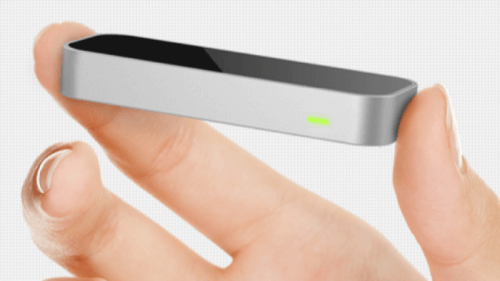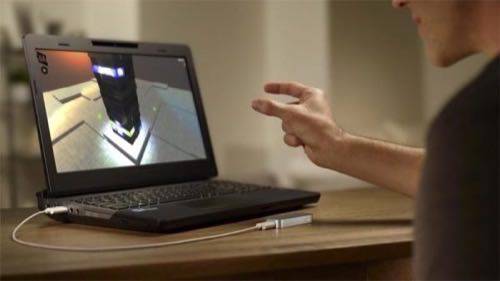
Hewlett-Packard has said that a partnership between itself and gesture-technology provider Leap Motion is an opportunity for “incredible user experiences.” But isn’t this really just HP casting about for something, anything, to set it apart from it competitors?
(See also Leap Motion-HP Deal: Gesture Control Goes Mainstream.)
Leap executives said Tuesday that they see HP’s clout justifying sales to other PC makers, as well as non-PC markets like surgery and automation. But how does HP benefit from all this? A bit of sizzle from one of today’s most hotly promoted technology firms, that’s how. (Asus announced its own partnership with Leap earlier this year.)
And boy, does HP need some sizzle right now.
(See also This Tiny Gizmo Could Be A Very Big Deal In 2013 – And Beyond.)
PC Market In Free Fall
Just last week, IDC and Gartner chronicled a free-falling PC market, dubbing Microsoft’s Windows 8 an anchor, when it was supposed to be a life preserver. Consumers are increasingly turning to tablets and phones as their “personal computing” devices. And without a viable tablet or phone offering (the Windows 8-based ElitePad excluded) HP must ride the barrel over the falls for at least the next two quarters. PC owners simply aren’t replacing their PCs as quickly as they once might, which makes Hewlett-Packard, the leader in the PC market, look especially vulnerable. HP’s PC shipments dropped by nearly 25% last quarter.
That’s not to say that the Leap Motion partnership is nothing but a smokescreen. HP representatives said that there are viable technical reasons for the deal.
“Our customers are looking for new ways to interact with, and create content,” an HP spokeswoman said in an email. “Leap Motion combined with HP technology and developer apps will offer incredible user experiences.
“Leap Motion’s not intended to fully replace existing input mechanisms like the mouse or keyboard, but rather to augment them and provide new and/or improved functionality,” she added. “Many creation and exploration tasks – like molding virtual clay or moving through maps – are intuitive in the real world but highly technical tasks when handled with computers. Leap Motion can help overcome the input barrier to give people a new interaction experience.”

What Leap Motion Really Means To HP
Reading between the lines, two things jump out:
- Expect HP to either commission or partner with a developer to ensure that the Leap Motion gestures are well represented with at least one showcase app, like Windows 8’s Fresh Paint app
- HP carefully avoided the use of the word “touch”
Navigating through a map doesn’t seem that difficult (pinch to zoom? Scrolling mice?) but sculpting a piece of virtual clay might be a fun experience using Leap Motion’s technology. Navigating in virtual space (as we did with the Leonard3Do at the Consumer Electronics Show this January) provides a new, fresh way of interacting with a computer. And that’s exactly what new technologies like Windows 8 hoped to offer.
HP declined to comment when asked if Leap’s technology was designed to replace touch, and another representative hasn’t yet responded to my question of whether the Leap peripherals would be bundled with HP’s (non-touch) desktop monitors. The latter capability would be quite useful, I think.
A Leap Ahead Of Touch?
In a way, I was really hoping that HP would position the Leap technology as a way to enable touch-like interactivity, but without gunking up the screen. It may seem a bit fussy, but who really wants to have to scrub off a fine glaze of Cheetos after lunch?
Bob O’Donnell, a PC analyst with IDC, said he sees the Leap Motion partnership providing another way of interacting with the PC, augmenting the mouse and keyboard. But he said it’s also pretty impressive.
And Leap Motion could also save HP – and consumers – some money: A 13-inch touchscreen costs a PC maker $65 or $70 more than a similar non-touch screen; Leap’s technology will probably be about $45, O’Donnell predicted. That’s a big difference, especially with touchscreen competition making them hard to come by these days. “Remember, these guys argue over nickels and dimes,” O’Donnell concluded.
At this point, the PC industry seems inclined to clutch frantically at whatever splinters it can to keep itself from drowning in sea of red ink. Will the partnership between Leap Motion and Hewlett-Packard be enough to save HP? Probably not, but it sure can’t hurt to try.
But here’s another thought: wouldn’t building a competitive tablet be a better idea for HP?
















